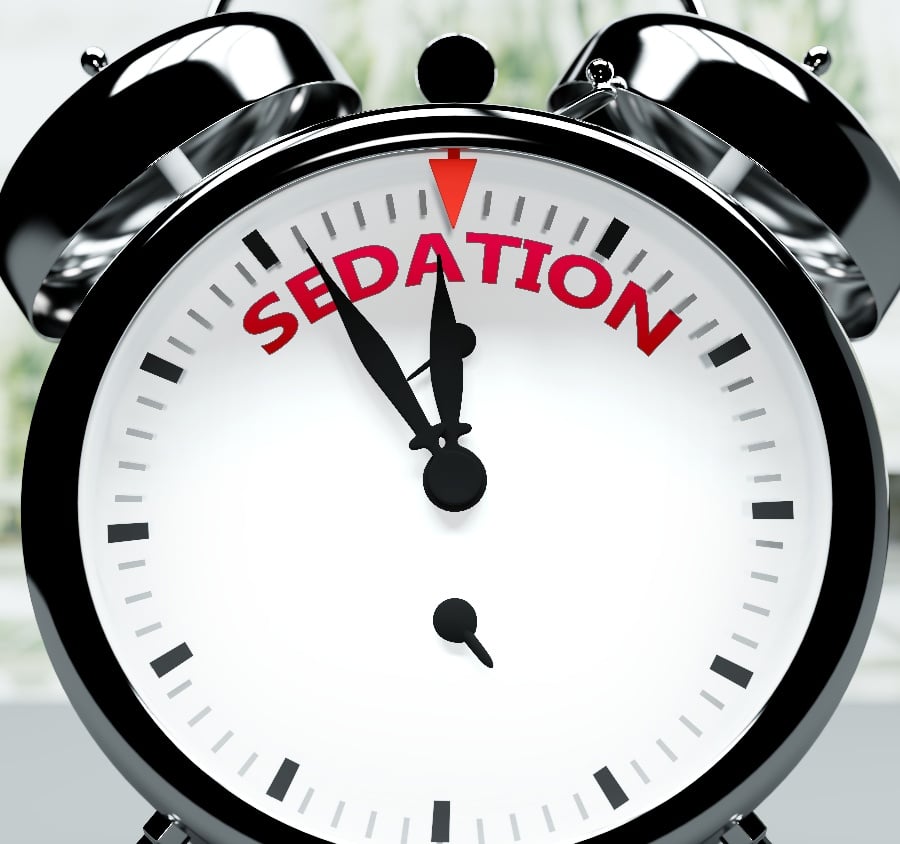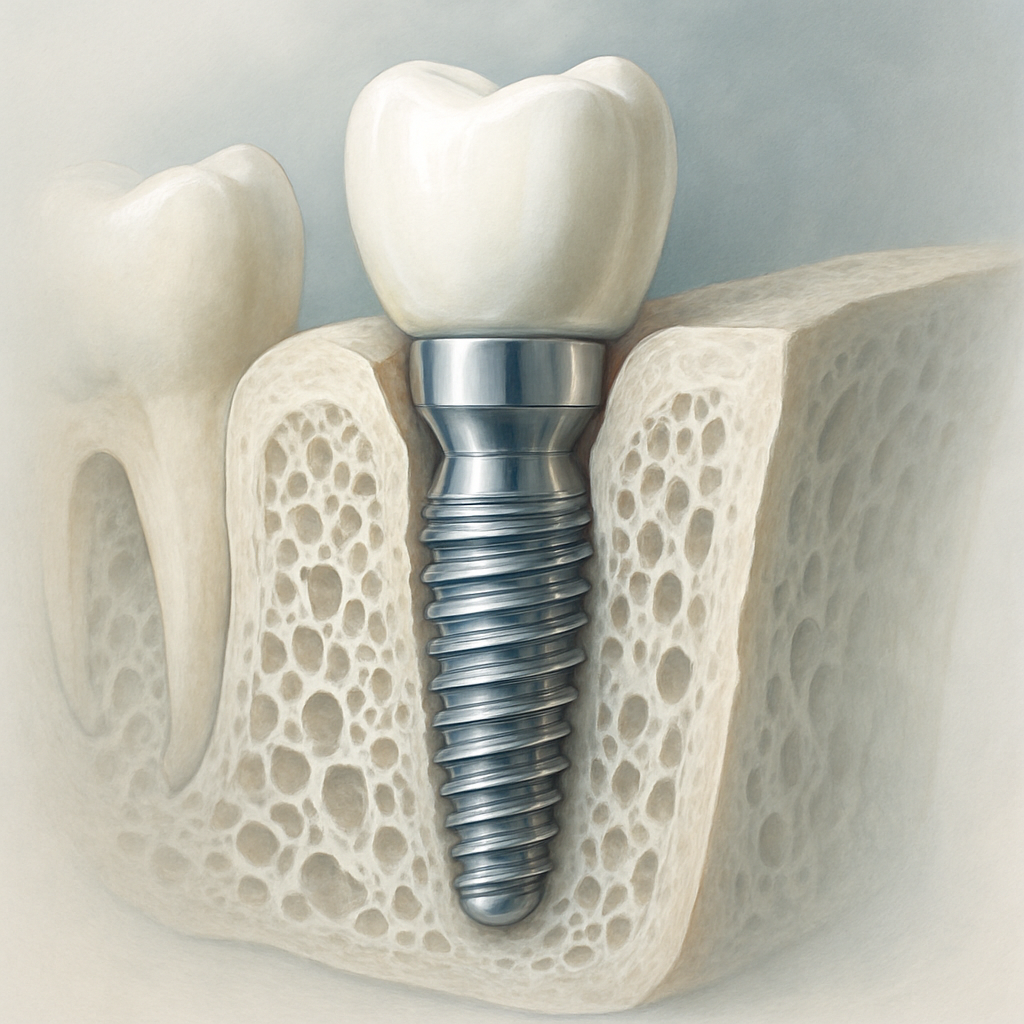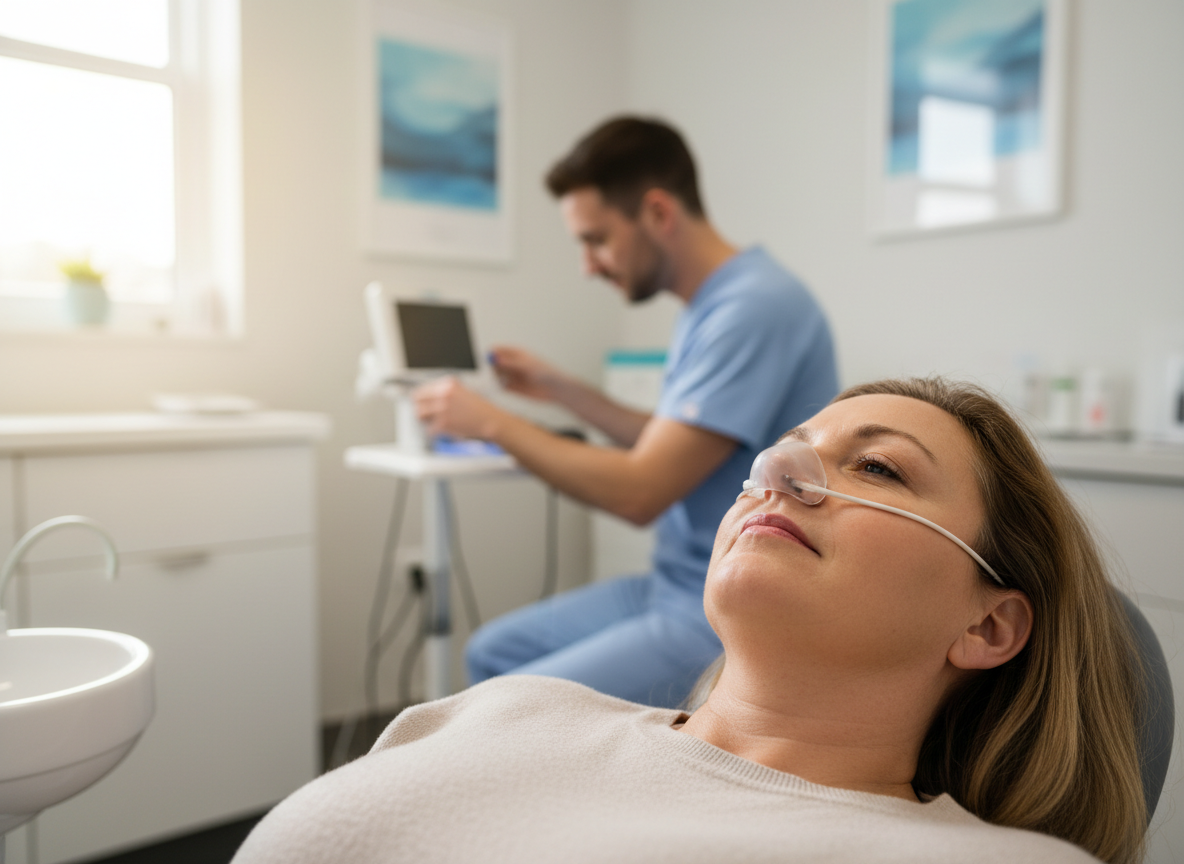Have you been living with dental fear and anxiety? Has it caused you to ignore your regularly recommended dental visits? Well, you will be happy to know that you are not alone. Dental anxiety is very common, and it affects many people.
Many people often ignore the discomfort or use over-the-counter medications until the pain becomes excruciating, and emergency care is required. This reactive method of only addressing your problem areas can be both expensive and time-consuming, not to mention, detrimental to not only your oral health but your health overall as well.
A person's fear and anxiety are often due to negative dental experiences in the past and are the main reason people ignore their oral health until there is an issue. Others are simply not comfortable with the thought of someone working inside their mouth with a large needle and scary-looking instruments.
The team at Palmetto Dental Arts understands your dilemma, and we're sympathetic to your anxiety. This is why we offer a variety of sedation dentistry options to comfort our patients.
What is Sedation Dentistry?
Sedation dentistry is a method in which some patients will be administered sedating-type medications to aid in their relaxation, and in more extreme cases, sleep. However, sedation dentistry will generally not leave you completely unconscious. But, due to sedation, patients may not remember everything that happened during the process.
Are There Different Types of Dental Sedation?
Yes, there are numerous levels and techniques of sedation dentistry which range from minimal anesthesia where you will be awake, to general anesthesia which will cause you to doze off during the procedure.
Sedation Dentistry Techniques include:
- Inhaled Minimal Sedation — Also known as "laughing gas," a method in which sedating medication is administered to the patient via a breathing mask that allows you to inhale the medication, which will put you in a relaxed state. Laughing gas is a combination of oxygen and nitrous oxide, and your oral surgeon or dentist will control the amount of medication that you receive.
- Oral Sedation — Oral Sedation is where you will be given a pill about one hour prior to the procedure. The dosage of medication administered will range from minimal sedation to moderate sedation. The pill will cause the patient to become drowsy, yet they may remain awake. In some instances, sleep may occur, as this pill is a sedative.
- Intravenous (IV) Moderate Sedation — In this procedure, the patient will be given sedating medication through an IV. The patient will become drowsy and may even fall asleep if deeper sedation is required. With IV sedation, the dental surgeon can adjust the medication as needed.
- Deep Sedation — Similar to moderate sedation, but deep sedation requires a stronger level of medication, which almost completely renders the patient unconscious. However, they can be easily awakened, and may not remember much about the procedure.
- General Anesthesia — Another method that is generally administered through an IV, and is strong enough to absolutely put the patient to sleep. People under general anesthesia will awaken once the medication has run its course or is reversed with medication.
Regardless of what type of sedation you and your dentist choose, you will likely still need local anesthesia in order to provide numbness.
Sedation Dentistry — What You Should Expect
Normally, with any kind of sedation, your dental surgeon will advise you to dress comfortably, and you may also be allowed to bring a music player with headphones. Also, if you have opted for oral or IV sedation, your dentist may advise you to fast for six to 12 hours prior to your procedure. You will also need to have someone bring you to your appointment, and pick you up.
Once you've returned home, you may feel tired and want to take a nap. This is often due to the sedative that you received for your procedure. You should plan on resting for the remainder of the day. Your dentist may also urge you to eat light meals or give you a list of foods that you should and should not eat within hours after the procedure, and during the healing process.
How Safe Is Dental Sedation?
Dentists and oral surgeons consider the patient's current and past health conditions, age, and weight to reduce the risk of complications. This information will also assist the dentist in being able to adjust your sedation medication appropriately, as needed. Like any medication or procedure that requires sedation, there are associated risks.
Your dentist is aware of these risks and takes precautions to lessen any complications. However, this is why your dentist utilizes electronic tools that monitor your vital signs, including your breathing, heart rate, and blood pressure.
People suffering from obstructive sleep apnea have a greater risk of sedation complications, along with a few other conditions that your dentist will discuss with you. You should also discuss any other concerns you may have about dental sedation, as it refers to your health history.
Prior to undergoing dental sedation, check to make sure your dentist or oral surgeon is licensed and accredited.
Am I a Good Candidate For Dental Sedation?
You may be a good candidate for dental sedation if you:
- Have sensitive teeth
- Have a low tolerance for pain
- Requires a lot of dental work
- Have a highly sensitive gag reflex
- Have a high level of dental anxiety
- Are unable to sit still for extended periods of time.
Conclusion
If you've been putting off your dentist visit due to fear or anxiety, we can help. Our professional dentists will work with you to put you in a relaxed state so that you no longer have to neglect your oral health due to fear. Remember, neglecting your oral health can lead to problems with your overall health.
If you have questions about the safety or necessity of dental sedation, we welcome you to speak with one of our trained and experienced staff or our board-certified dentists at Palmetto Dental Arts. Feel free to call us at 843-790-7211 or contact us online today to schedule your appointment! In the meantime, click here to check out our blog for more interesting dental articles.





